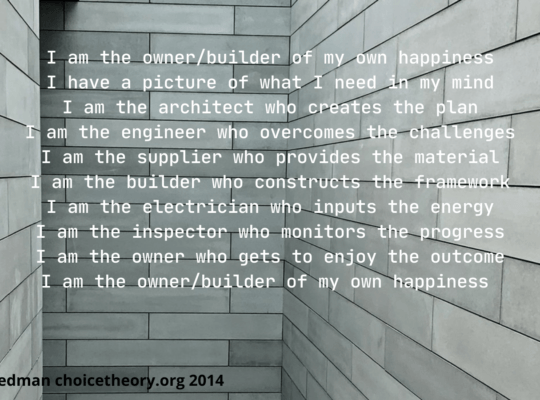
Photo by cottonbro from Pexels
Have you ever been presented with a choice that required a big decision? A decision that would change a lot of things in your life and that you might not be able to easily come back from? Maybe you have made a big decision based on what you thought you really, really wanted, only to find that it wasn’t how you imagined it would be?
The ability to make good decisions is important and it’s a very important life skill to teach our children. While we can learn something from each decision that we make, the reality is that some decisions can have us taking very long and arduous routes to reach our life goals.
While there are five basics to good decision-making, there is another aspect that is rarely considered, but which is the foundation of every good decision.
The Five Basics of Good Decision Making
- Clearly recognise what it is you are trying to achieve with your decision.
- Does your decision align with your long-term goals and life plan?
- Have your gathered and considered all the information relevant to your decision that you can?
- Have you considered the possible consequences of the decision?
- Seek advice from people whose input you trust and re-evaluate your decision accordingly before proceeding.
The Foundation of all Good Decision Making
The real foundation of all good decision making is understanding how a decision will affect our needs. Understanding this earlier in my life would have saved me from taking a number of difficult and unnecessary paths.
If you have been reading this blog regularly, or you are familiar with Choice Theory, you will know that we all have five basic needs: survival, love and belonging, power, fun, and freedom. There is a Needs Profile you can download and use in the sidebar to deepen your understanding of your own specific needs.
Successful Decision Making
The success of our life is determined by how well we meet our needs. By evaluating a decision against our Needs Profile we can predict how the change in circumstances, brought about by a significant decision, will affect our needs.

We might make a choice that meets one or two needs, but threatens others. Let’s look at this in practice.
We are offered the job of our dreams with a lot of money, but it involves moving interstate away from all our friends and family. While our need for power (success and acknowledgment), and survival would be met by the new job, our need for love and belonging could be threatened. If love and belonging is a strong need for us we could have difficulty adapting.
If we have a good understanding of our needs, we would evaluate our decision to see if the job and the money would be worth distancing ourselves from friends and family. If we decided that it would be worth it we would be able to plan the move with friends visiting regularly, budgeting for trips home, frequent video calls, and investing a significant time making new friends in our new home. Without a good understanding of our needs, we might wonder why we aren’t happy with our choice, possibly finding all sorts of reasons why it isn’t working, pack up and go home. Or we might struggle on and begin depressing and anxiousing.
According to Dr William Glasser, the creator of Choice Theory, our needs are constant throughout our life. We can see this in even very young children. A child with a high need for freedom will not want to be swaddled, will tend to break rules, will probably want to wear few clothes. A child with high love and belonging will seek out lots of friendships and a child with a high need for survival will be cautious.
Buckets Full of Needs
Although our needs stay fairly constant throughout our life it does not always seem that way and this is where we can get tripped up in decision making. Our needs are like buckets. We can have a big bucket need for Love and Belonging for example, but as long as our needs are being met and our bucket is full we may not realise how important it is for us.
We might make a choice that meets one need but threatens another because that need has always been met and we didn’t realise how important it was to us. Similarly, if a needs bucket is very empty it may seem more important to us than it usually would be.
Unpacking that Dream
Last week we looked at that One Elusive Thing. How can you be sure that a decision to follow a dream, or your One Elusive Thing, is actually going to make you happy?
Firstly it’s important to look at the pictures and perceptions you have in your mind about that dream. Are they realistic? Are you looking at your dream holistically or just one aspect of it?

Many people dream of writing a book. They see themselves being creative and having a successful book which can mean, fame, being seen as an expert, money, and an appealing lifestyle.
What they don’t look at are the less appealing realities of writing a book: –
Hundreds of hours of unpaid, solitary work before anything can happen
Many hours editing
Inevitable rejection or direction by editors
The necessity to actively market your work as well as create it
The necessity to follow-up your work and give your audience what they want
The volumes of sales needed to make reasonable money
All these realities are going to affect a number of their needs; for example, if they have high power needs they would probably find the rejection and direction by editors difficult.
The reason why people continue to procrastinate over something like this is because the process may not even be meeting their needs, never mind the end result. Or the process, i.e. the actual writing, is meeting a need but is also threatening needs at the same time. This is especially true of most creative endeavours where people can plague themselves with thoughts of not being good enough, which is a big threat to their power needs.
Evaluate, Evaluate, Evaluate
Bringing out that big decision, dream, or that One Elusive Thing into the clear light of day, evaluating it realistically, and against your needs analysis, can save years of messing about and not getting where you want to go. I know because this was me. I was reminded of it by a friend who was procrastinating over finishing a novel and was exactly where I had been ten years ago. As you can see, I’m still writing, just in a different way that better meets my needs.
This life is a very precious thing and everyone has challenges along the way, but by fully understanding our needs we are much less likely to make it more difficult than it needs to be.
Thanks for reading and as always I encourage you to comment below. It’s great for a number of my needs 🙂
Deb








Hello there, thanks for sharing this awesome article i know it will be of tremendous help to many people at this time. I like the “how to’s” of good decision making. I had never really considered how to make a good decision before, I just delved right in and went for it, sometimes with not so great results. Making the best decision counts for so much of one’s success….thanks once more
I know I have jumped into things without thinking it through… reacting on impulse. The grass is greener on the other side of the fence. It is a good idea to plan and think things through. It is easy to get stuck in want this and I want that and not covering your needs. On impulse, and against good advise, I sold everything and moved to Northern California in the mid 90s. The job market was really, really bad and my trust in a “friend” of being set up for success failed big time. I ended up homeless with angry parents who did not offer to help. Covering needs is important.
I am out of work because, but since I put away for a rainy day my needs are met. Will people listen to this advice? Most won’t, but your target audience will.
Thanks for sharing. I do enjoy learning psychology and anything to help me along my path.
Many blessings, Brian
Thanks Brian for your generous comment. I wish you all the best in the future and hope that you have learned how to make better choices for the future. It seems to take some of us a few wrong turns to start getting things right consistently. 🙂 The older we get the more our choices matter because the harder it is to come back.
We can’t agree more on your statement that “life is a very precious thing and while everyone has challenges along the way, fully understanding our needs we are much less likely to make it more difficult than it needs to be.” Life journey is full of situations where a decision has to be made between options in front of us. And knowing the basics and foundation of good decision-making will make things a lot easier.
Thank you for this insightful article. All the best.
I imagine that the first good decision would be to read your article! 😁
I have bookmarked your article and I will really give it a go. Recently, I have been concerned about the quality of my decision-making–especially in this time of general crisis–when good decision making is of paramount importance. Because you have broken down the process into manageable steps, I have confidence enough in the procedure to give it a shot.
If you don’t mind, I’d like to return in a few days and let you know how it’s going.
Cheers for a fine article.
Hi Deb, I have certainly made decisions in my life based on dreams, rather than reality, only to then realise that I had not really thought it through properly.
I have never come across a needs profile, but when you describe it in terms of kids, it makes so much sense. The baby who doesn’t want to be swaddled because he or she wants freedom. And will most probably continue throughout life needing that freedom to explore.
I love your use of buckets for our needs, it does make it more real. Thanks, Liné
Hey nice article you have there, your thoughts are indeed valuable. Who we eventually become tomorrow is a reflection of the choices we make today. So many are unable to differentiate between what they need from what they think they want, hence they have conflicting choices. Good decision making is necessary to have success without making painful mistakes.